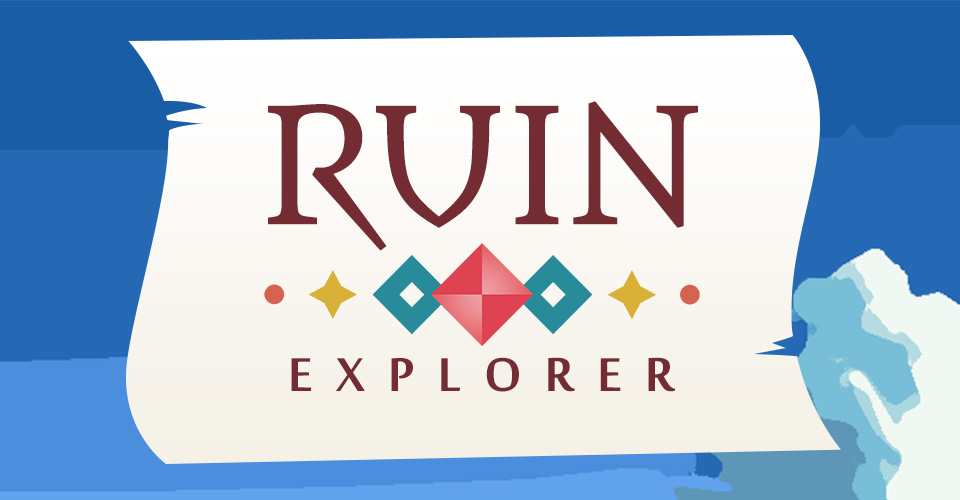
Ruin Explorer
A downloadable game
People say that to be a ruin explorer
is to wander
the forgotten corners of the world
to ask the ancient gods
about things
they do not want to remember.
WHAT IS RUIN EXPLORER?
Ruin Explorer is a solo journaling RPG that you play using only a traditional deck of 78 Tarot cards. It's heavily inspired by the contemplative, wholesome feel of Studio Ghibli movies, and by playing it you'll write amazing stories that tell as much about your character as about you yourself.
EXPLORING THE UNKNOWN
In Ruin Explorer you'll create an explorer and tell a compelling life story about them that only you would be capable of. By drawing Major and Minor Arcana from your deck, you'll be faced with prompts about ruins or introspective moments, and the respective challenges you have to face before you walk away with your prize - or lesson.
This game is made in a way that you can play it dozens of times and never tell a similar story. Ruin Explorer can work in virtually any setting or theme you want it to.
SOLO JOURNALING RPG?
This is a role playing game you play by yourself. It will present you with various situations and questions, and you'll describe everything that comes to your mind as you read them. The story unfolds with the cards you draw, but also in the way you want it to. You can play by imagining the scenes, writing notes, recording audio or video logs, or even drawing each chapter. It's entirely up to you.
DOES IT TAKE A LOT OF TIME?
It depends. Most playtests indicate an hour or so per chapter, and each chapter is self-contained enough for you to play them as oneshots or as a continuous campaign. However, how slow or fast you resolve the scenes is up to your favorite style of playing.
AVISO AOS BRASILEIROS
Problemas com métodos de pagamento internacional? Conversão do dólar? Me chama no BlueSky e vamos achar um meio mais fácil! ;)
| Status | In development |
| Category | Physical game |
| Rating | Rated 5.0 out of 5 stars (41 total ratings) |
| Author | manchae |
| Genre | Role Playing |
| Tags | physical-game, Solo RPG, solorpg, Tabletop |
Purchase
In order to download this game you must purchase it at or above the minimum price of $15 USD. You will get access to the following files:
Exclusive content
Support this game at or above a special price point to receive something exclusive.
Community Copies!
To make it easier for #RPGLATAMJAM creators, I'm putting some community copies up. They will not be renewed. If you came here and there are no copies left, you can always contact me via bluesky, instagram or twitter (@manchae) and ask for a key!
Development log
- BLACK FRIDAY SPECIAL!Nov 26, 2021
- Play examples & What's nextJul 12, 2021
- RUIN EXPLORER IS OUT!Jun 15, 2021
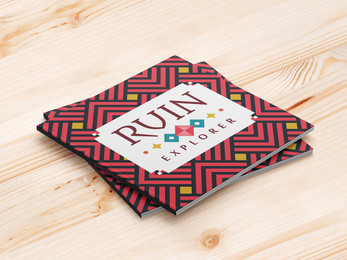

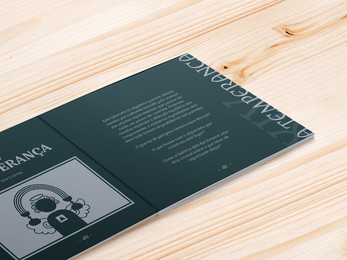
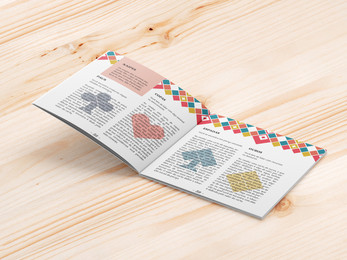
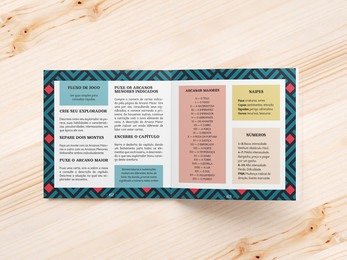
Comments
Log in with itch.io to leave a comment.
Hi! I would love a community copy of this game but refuse to use the platform formerly called Twitter because reasons related to the owner being what he is. My email is sharyna at gmail dot com if there is a code available. Thanks!
Hi i really enjoy ruin explorer and started playing it. Because i'm more a visual artist i decided to make my plays into kinda pdf zines with text and illustrations :)
If you want you can read the first chapter here ^^
https://tantedante.itch.io/teofina
This game is gorgeous and very well designed. I took some time going over it for the first time live on stream. You can check it out below!
I love the Ghibli-esque aesthetic in the writing and design (it can surely be reinterpreted as more gritty and dark but why would anyone want that), and the design is so clean, colourful, and evocative!
I enjoyed Ruin Explorer very, very much. I used the Portal Tarot (same designer as the GameMaster's Apprentice decks, Larcenous Designs), although you can use a d20 and a plain playing card deck instead.
This game utilizes the structure of the Tarot very well, in particular the division between the Major and Minor arcana, separated into two decks.
From one deck, you draw the Major arcana, and follow the directions in the rulebook for each one. Each Major gives unique guidance for a particular setting, for a particular situation, or for a quiet moment of contemplation; many of them change the rules slightly with regards to how you deal with and interpret the Minor arcana.
From the Minor arcana deck, you draw cards that give you inspiration for various elements to add to your tale for this particular Major arcana, effectively a chapter in the life of your explorer. You don't need knowledge of Tarot in order to use the Minor arcana (or the Majors), since the rules provide an easy guide that covers the characteristics of each suit with a scale of intensity for intervals of ranks. No need to memorize individual card meanings.
The nature of the prompts (at the time of this writing; another version is in the works to add more detailed prompts) are very open-ended while giving a bit of guidance, there is an elegance and briefness to the main play loop alongside a lack of stats/states to track, and a lot of freedom between stages of play (the chapters here) to create my own plots and links between them---basically the kind of journaling game I love the best.
Played as a campaign that can stretch over ten chapters, I found Ruin Explorer a pleasant way to create a story in this particular genre with an intensity that ebbs and flows thanks to the different natures of many of the Majors.
Highly recommended if you love open and non-crunchy journaling games that create a narrative with quite a lot of story beats built into the inherent structure of how the Tarot is used.
Notes:
Some may ask what happens if you only get to do one chapter, as in you draw the Judgement card straight away from the Majors deck, or if you end up needing all 22 Majors. Here is my recommendation: the game is not bound by rules the same way many board games and crunchier RPGs are, so you're very free to reshuffle the Judgement card back into the deck if you don't want to deal with it at any time, or to conclude early with Judgement at any time you want. This will not break your game.
Also, feel free to use inspiration aids whenever you need ideas. This mechanic is actually explicitly built into a few RPGs, but it's something you can do for any narrative game.
Some play examples, with brief summaries, from an 16-chapter campaign:
--
Chapter 0: Simple Character Build
My character is a growing, young academic; they dream of following in the footsteps of their two mothers in finding great archaeological evidence that rocks the academic world; they love beautiful, serene landscapes and hate loud noises.
I didn't end up using the quirk or much else in the way of characteristics or items; I prefer to let some aspects of my character develop on the fly.
Chapter 1: XI Justice
Directions for Justice: Draw 2 cards. Setting for Justice: an ancient court or other place of law.
Drew two cards; reveal the first as Queen of Coins. Coins means treasures, valuable discoveries, and the like; a Queen is part of the rank interval that indicates whatever I decide to use this card for, it must be very impactful to the narrative (rather than a temporary obstacle).
I decide that, since this is an ancient court of law, that my character discovers tablets enscribed upon the walls the legal code of the ancient civilization that used to be here, never before discovered.
I reveal the next card to see what else I add to the mix. I reveal the 10 of Swords, a dire danger (or a dire revelation, as I prefer to play) that requires a big sacrifice to get out of the situation.
I decide that the chamber I'm in suddenly locks me in, Indiana Jones style, and a mysterious ghost appears before me. The ghost tells me I can't leave with my notes because the last generation of this civilization wanted this place and its culture to be forgotten, because a terrible injustice had been committed that destroyed them.
I leave the notes (essentially sacrificing that big turn of events) and I'm allowed to leave. What I carry with me is the knowledge in my head of what the ghost told me, even if I don't have the notes to translate what the undiscovered legal code was.
--
Chapter 6: X The Wheel of Fortune
Directions for The Wheel of Fortune: draw three cards. Situation for The Wheel of Fortune: things do not go well, luck changes for the worst.
Draw three cards: the first I draw is the King of Coins; so a treasure/discovery of value that changes the direction of the story as a significant moment.
At this point in my campaign, my professor somehow found me during my trek through this part of the region and is helping me out. Uh, "helping" me. In the previous chapter it turned out we disagreed about what exactly is important in exploring an ancient site.
So I use the element of my professor and the element of our head-butting approaches to archeology, and come up with a possible scenario based on the King of Coins: there's something significant here about the value of archeological finds, and we're probably not going to agree.
I decide to turn the next card over for more inspiration to add. I reveal the Queen of Cups. That's another significant element to add to this chapter. Cups are the realm of emotions and feelings, and what stronger feeling could come up for me than something about one of my mothers?
Thinking about what could come up next, as the Wheel of Fortune turned out to be harder to write about than a Major like Strength, I reveal the third card: the Ten of Swords. A dire situation of danger (or a dire revelation, as I play it), with a high intensity that means something must be sacrificed to survive and/or keep going.
With all these taken into account, I decide that what happens is that my professor and I have lost our way; it's an arduous journey over rocky terrain that you trip and fall over and scrape your knees all to heck, it's hot and the water is running out, and that small kerfuffle we had in the previous Strength chapter comes out to a boiling moment where we fight over how to return to camp:
My professor reveals how much he hated the valuable research one of my mothers did, because he didn't like her interpretations and thought she wasn't objective enough in her conclusions. He asks me whether I was foolish enough to follow in her footsteps; and I of course say YES. He turns away from me, hunched over in anger, frustration, and disappointment.
We find our way back to camp, whereupon he immediately packs his things and departs. I have lost my companion who, while not agreeing with me, did make exploration a lot safer. I carry with me the weight of not knowing what happened in the past between him and my mother.
--
Chapter 12: XVIII The Sun
Directions for the Sun: draw three cards, but resolve each card completely before revealing the next. Setting for the Sun: desert ruins.
I draw three cards, and I'll have to resolve each one before I reveal the next, very unlike previous chapters (especially the Wheel of Fortune).
At this point in my story I'm deep in debt to the University because my former professor cut ties with me, which also meant my stipend and tuition waiver were lost. In previous chapters I managed to convince another professor to take me under her wing, but it turns out that perhaps my University department has an unscrupulous culture because she wanted me to destroy a site to gain a treasure that was otherwise unobtainable, and so I really am on my own with this debt.
Before I reveal a card, I think about what my character would do next. They need valuable finds they can turn into cash, but that might be rare; so they might now take on odd jobs and missions from local inhabitants to earn some money, or at least food and board and supplies to keep going.
I cautiously turn over the Eight of Wands. Wands means I need to add a being (a creature, a human, etc) to my story. The eight means whatever the situation is, it's going to require sacrifice.
Ok. I have to resolve this all the way first. I decide that I've got to rescue something (a herd animal from a village nearby! Perhaps a sheep) from the building that a desert lion is prowling around. So I've got to get through to the building, but if I don't put down that lion for long enough, I'm not going to get out alive.
But I still don't want to hurt or kill animals---a character trait I added here, to make the situation require sacrificing something important to me. I decide to shoot a tranquilizer dart into the lion, but it'll last maybe half an hour. I'm sacrificing the softer part of my principles but also my ability to get away scot-free.
First obstacle down, I'm in the building. Time for the next card: the Knight of Swords. Ok; a serious revelation that will change the course of the story somehow.
I decide: I find the sheep deep inside the building, resting in the dust underneath an enormous tapestry depicting an important religious figure we have little information about. This tapestry depicts multiple folk tales. A very serious revelation indeed.
But. I am torn. I stare at the tapestry. I decide that I suddenly realize my life goals have changed due to my negative experiences with important, close authority figures in my field, as well as my experience in the first chapter with the ghost that wanted their people to be forgotten. I stop wanting to steal away with the secrets of ancient civilizations, even if I still want to discover them for myself.
I rescue the sheep and not the tapestry; time is running out, that tapestry is huge and heavy, and I need money and also to not die in the desert.
Obstacle resolved; next card: the Five of Swords. Holy crap, a lucky break of sorts; it's not a high intensity Swords, so discovering that desert lion has woken up and is coming at me has a simple sacrifice to make: I throw my beef sandwiches at it. The desert lion, very very starved and thin, immediately smells the meat and starts devouring the sandwiches, and the sheep and I run VERY FAST and FAR AWAY across the dunes.
I carry with me in the end this sheep as a reward, along with some food.
--
Chapter 16: XX Judgement
The ending and last scene of my campaign.
Directions for Judgement: draw five cards, discard up to four, deal with them in any order you like. No rules limits otherwise. Situation: here you end your adventures.
I draw: the 4 of Coins, the Page of Coins, the 7 of Swords, the Page of Cups, the Knight of Coins.
I've decided in the previous chapter that what my character now wants most of all is to live a quiet life, in a small village near the sea somewhere. I keep the 4 of Coins, the 7 of Swords, and the Page of Cups; I discard the rest. What I choose to discard might dictate some other inspirations for me, too; we're in the overtime of epilogue and there are no more limits.
With the 4 of Coins I have a pretty easy out of my debt: I turn over all the artifacts I've found, several of them very valuable, to the department and clear my debt entirely. With the 7 of Swords I decide that the revelation is to the world my mothers' private notes which I inherited, and some of which I found at a market in trade for the sheep I rescued (a few chapters ago). I donate all of that to a museum I trust and respect.
With the Page of Cups, I change my life in an emotional way. In this case, I decide that emotion is fulfillment and content. My character retires to a small fishing village near the ocean. They spend the rest of their life catching fish, painting sunsets, and thinking about a life well-lived, in the end. There isn't any desire for revenge on the professors who ruined my career, and I don't ever check to see how they're getting on.
I have my peace, and that was always going to be the best reward. I really do hate loud sounds, after all; and I love beautiful, quiet scenery.
The End
What an amazing read that was!
Thank you so much for such a detailed review of my game! I'm happy that it gave you such great moments! <3
Currently enjoying a campaign, and have a couple tweaks I've been using, followed by a recommendation on generating inspiration to write each chapter entry:
I recommend that even players without experience in Tarot look at the card illustrations in their deck for inspiration for story elements. It's an advantage most tarot decks have over most playing card decks. A lot of tarot decks have repeated motifs that appear throughout cards as well, which can inspire linking elements throughout the journey.
Will report back when I finish.
First of all, thanks for the kind words and suggestions! <3
I love the idea of turning spades/swords into revelations. Danger wasn't supposed to be something that obligatory would hurt your explorer, but something they would perceive with fear, anxiety or concern. A revelation is both closer to that and broader in meaning, so that's a very good change.
For the Minor Arcana, I tried my best to follow Rider-Waite themes, yes, but I also tried to keep it as simple as possible for the people unfamiliar with Tarot. I have opted for the simpler approach, but players are more than welcome to use their deck of choice's meanings instead, if that can create a better story!
You did really well adapting the Rider-Waite themes!
Spades as Revelations has continued being an excellent tweak for me. I was not actually prepared for my research professor to, at a very unfortunate Wheel of Fortune situation, reveal just how much he despised my mother's approach to interpreting archeological finds, have a fight with me while we are trying to locate camp, then him leaving without a word.
Except for the next major (Death) where the university notified me that he had terminated my stipend and tuition waiver and that I had a new bill of thousands of dollars that I needed to figure out how to pay.
It would have actually caused less lasting damage to my character had they fallen into a river and lost everything but their life lol. But I still prefer revelations.
The campaign still continueth.
Is there an example of play in English ?
I'm working on it!
Hey @fozbaca! I just posted an update with a video example of gameplay right here!